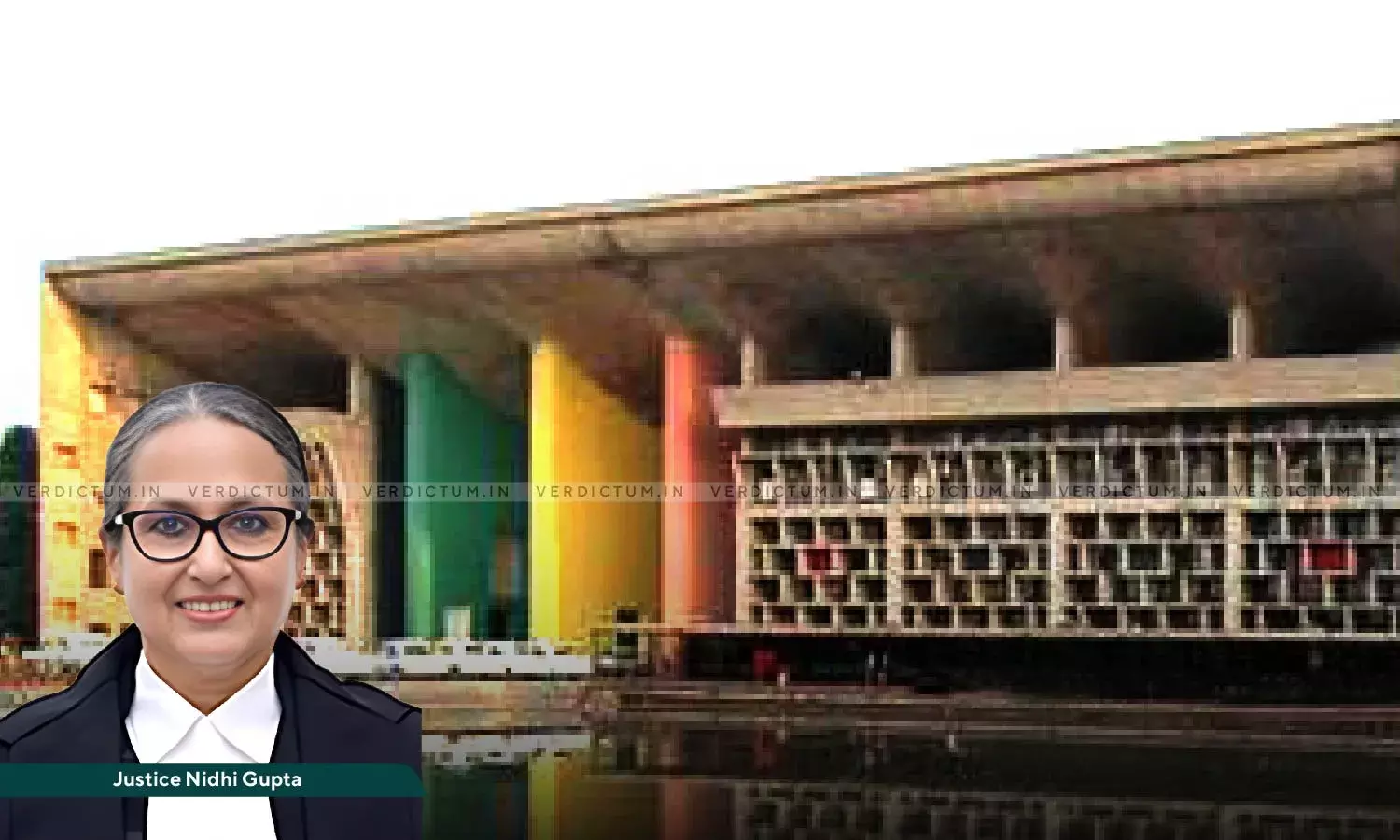Section 3 Of Limitation Act Will Not Come To Rescue Where Issue Of Limitation Is Mixed Question Of Law & Fact: P&H HC Reiterates

The Punjab and Haryana High Court has clarified that issues are to be framed based on the pleadings of the parties and defendants are obligated to specifically plead in the written statement that the suit is barred by limitation when issue of limitation is a mixed question of law and facts
Referring to the judgment of Apex Court in Narne Rama Murthy Vs. Ravula Somasundaram [(SC) Law Finder Doc ID # 84411], the Single-Judge Bench of Justice Nidhi Gupta observed that “in cases where issue of limitation is a mixed question of law and fact, Section 3 of the Limitation Act will not come to the rescue, and it is required that ground of limitation be raised in the pleadings.”
Advocate Gurcharan Dass appeared for the Petitioner, whereas Advocate Sandeep K. Sharma appeared for the Respondent.
In a brief background, the Plaintiffs/Respondents filed a civil suit for declaration to the effect that a gift deed was void and not binding upon the rights of Respondents with consequential relief of permanent injunction. After the trial commenced, the Petitioner/Defendants claimed that the civil suit of Respondent was barred by limitation as challenge therein was laid in 2016 to gift deed of 2009. Since the application of Petitioner was dismissed, hence present revision petition.
After considering the submission, the Bench noted that it was submitted by the Plaintiffs that they got knowledge of the disputed gift deed only in the year 2013.
The Bench further found from perusal of the plaint that the plaintiffs had specifically averred that during the proceedings of Civil Suit decided in 2014, they came to know about the gift deed, whereas in the plaint, the Plaintiffs had pleaded about accrual of cause of action in 2013.
“Therefore, limitation in the present case is not just a pure question of law, as evidence will have to be led as to when the plaintiffs acquired knowledge of the gift deed. It therefore, becomes a mixed question of law and fact”, added the Bench.
The High Court also noticed that there was no plea that the suit filed by the Plaintiffs was time barred had been taken in the written statement but, even in the written statement filed by the Petitioner and proforma Respondents, the averments of the plaint had not been properly controverted.
“Clearly, Section 3 of Limitation Act is applicable only when limitation is a pure question of law whereas in the present case question of limitation is of law and fact and therefore, pleading to such effect was required”, added the Bench.
Finding that the trial commenced in the matter on May 25, 2017, Plaintiff was cross examined, evidence of the Plaintiffs was completed and evidence of Defendants was going on, the Bench clarified that framing of additional issues at this stage would result in de novo trial and without amendment of written statement, issue of limitation could not be framed.
Therefore, while reiterating that no evidence can be led with respect to a fact which has not been pleaded, the Bench concluded that the Trial Court had rightly dismissed the application filed by the Petitioner and dismissed the revision petition.
Cause Title: Sukhbir Singh v. Gaje Singh (since Deceased) Through LRs and Ors. [Neutral Citation: 2023: PHHC: 081110]
Click here to read / download Order

